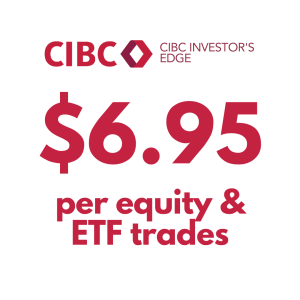
Exchange-traded funds (ETFs) have gained popularity among Canadian investors. They offer investors the opportunity to buy various securities within a single investment, similar to a mutual fund. The most desired feature of ETFs is their ability to minimize tax liabilities, especially when compared to mutual funds which are not as tax efficient. By reducing tax burdens, investors maximize their returns. Otherwise, taxes will negatively impact the overall income generated from investments. Overall, tax efficient ETFs in Canada can maximize your capital growth. Furthermore, they can generate a passive income stream, mitigate your investment risks, and much more. Do you want to strategically minimize tax liability and increase your investment yield? This article will outline four tax efficient ETFs in Canada and their distinct features. Read on to learn more!

Table of contents
Tax Efficiency and ETFs: Knowing the Basics
ETF stands for exchange traded fund. They are investment vehicles that pool money from numerous investors. Those funds are then invested into various assets, typically within a certain sector or industry. An ETF is actively traded on the stock exchange which makes them relatively liquid investments.
Based on their nature, ETFs are generally tax efficient. There are two primary reasons for the tax efficiency, including:
- Low turnover ratios: ETF portfolio managers don’t frequently buy and sell assets. This is primarily to minimize taxes on capital gains. Portfolio managers achieve this by reducing the income distribution to investors by holding onto investments. This is because frequent distributions increase tax liabilities.
- Passively managed funds: ETFs in Canada are passively managed, as opposed to actively managed. This means it tracks the performance of an underlying index that represents many companies or an industry. Since the goal is to reduce trading volume, the portfolio remains for an extended period. It only changes when the underlying index changes.
Related Reading: Maintaining Tax Efficiency at Every Age
CIBC Investor’s Line Offer
Up to $6.95 per online stock or ETF trade. Plus, there’s no minimum account balance.
How are ETFs taxed in Canada?
The Canadian government imposes taxes on ETF investments in Canada, depending on the type of income generated. The following are the various ETFs’ incomes and their tax treatment.
1. Capital Gains Tax
A capital gain is the difference between the purchase and sale price, with the sale price being higher. A loss can also occur when the sale price is lower than the purchase price. If you generate a profit on the purchase and sale of an ETF, it’s considered a capital gain. Only half of the capital gain is taxable and will be taxed at your marginal rate.
2. Canadian Dividends
A dividend is a payment to shareholders of an investment or company. Dividends are taxable income in Canada. Usually, the dividend is grossed up, then the taxpayer is eligible for the dividend tax credit. ETFs that distribute dividends are more tax efficient. However, those that distribute interest income or foreign income are less tax efficient, but more on that below. The tax rate imposed on dividends is lower than ordinary income due to the tax credit.
3. Interest Income Tax
Some ETF investments yield interest income. Normally, these are fixed income based ETFs, such as those invested in bonds. Interest income is taxed as ordinary income and is 100% taxable.
CIBC Investor’s Line Offer
Up to $6.95 per online stock or ETF trade. Plus, there’s no minimum account balance.
4. Foreign Withholding Tax
This is the tax a foreign government imposes on income earned from investing in their local securities. It only applies to income that an investor earns by investing in that foreign country. There is special tax treatment to consider when it comes to foreign investments. However, the taxation depends on the country and whether there’s a tax treaty.
Related Reading: Best Gold ETFs in Canada for 2023
Are ETFs more tax-efficient than mutual funds in Canada?
Based on several factors, ETFs in Canada are generally more tax-efficient than mutual funds. Mutual funds possess active management coupled with a high turnover ratio. On the other hand, ETFs have a low turnover ratio due to their passive management. Overall, this results in more favourable taxation with ETFs. Additionally, certain tax efficient ETFs in Canada are more dividend-focused. Hence, they enjoy tax credits on eligible dividends.
Related Reading: Tax Efficient Mutual Funds Canada
Is an ETF more tax-efficient?
An ETF is more tax efficient than a mutual fund in most cases, as we explored above. But how do ETFs compare against other investments like bonds, stocks and guaranteed investment certificates? Ultimately, there is no easy answer to this question because it depends on the payouts, types of income and yields. In addition, it depends on how you manage your portfolio. Do you hold onto investments in the long term or frequently buy and sell? All in all, ETFs are quite tax efficient, but there are many ways to trim your tax bill with other kinds of investments too.
How do I avoid taxes on my ETF?
In Canada, it’s impossible to entirely avoid taxes on your ETF investments, or other investments for that matter. This is because they contribute greatly to the country’s financial structure and yield income that is subject to tax. However, you can reduce tax implications with some simple tips. These include:
- Investing with tax efficient ETFs in Canada that prioritize tax-advantaged income. We’ll explore some options in the next section!
- Utilizing registered accounts. These are the Tax-Free Savings Account (TFSA) and the Registered Retirement Savings Plan (RRSP). Both of these accounts are tax advantaged and either defer or shelter investment income from tax.
- Buying and holding for the long term. This reduces the frequency of capital distribution and thus minimizes tax impact.
Related Reading: ETFs vs Mutual Funds: Which is Better?
CIBC Investor’s Line Offer
Up to $6.95 per online stock or ETF trade. Plus, there’s no minimum account balance.
Which ETFs are tax-efficient?
Ready to explore tax efficient ETFs available in Canada? Check out four of our picks below.
| Ticker | Inception Date | AUM | MER | Return | Turnover Rate |
| HXT | September 13, 2010 | $3.67B | 0.07% | 3.13% | 26.20% |
| HXCN | February 5, 2020 | $1.76B | 0.05% | 3.28% | 19.64% |
| HXS | November 30, 2010 | $1.53B | 0.10% | 15.70% | 34.92% |
| HSAV | February 5, 2020 | $2.07B | 0.18% | 4.53% | 0% |
1. Horizons TSX 60 Index ETF (TSE:HXT)
The Horizons S&P/TSX 60 Index ETF is one of the most popular tax efficient ETFs in Canada. It replicates the performance of the underlying index, S&P/TSX 60, which represents 60 large and liquid companies in Canada. It’s a low-cost index ETF with a reasonable management fee. Horizons S&P/TSX 60 Index ETF utilizes a total return swap structure. This structure intends to minimize capital gain distribution and thus reduce tax liability. The ETF doesn’t pay capital gain distributions to investors. However, it continuously grows all capital for an extended period. This significantly minimizes the tax burden.
2. Horizons TSX Capped Composite ETF (TSE:HXCN)
Horizons S&P/TSX Capped Composite ETF is another popular tax efficient ETF in Canada from Horizons. It has a short performance track record. The ETF passively tracks the performance of the S&P/TSX Capped Composite index. HXCN has an inexpensive management fee of 0.05%, which is negligibly higher than that of HXT. Just like the HXT, it does not distribute capital gains or dividends. It’s a great option for taxable accounts.
3. Horizons S&P 500 ETF (TSE: HXS)
The Horizons S&P 500 ETF is also among the most popular tax efficient ETFs in Canada. It tracks the underlying index, the S&P 500, which represents 500 of the largest companies in the US. As a result of the fund’s exposure to the U.S., its management fee is 0.10%, which is a little higher than the HXT and HXCN, or other ETFs. Like the HXT, the ETFs also use a total return swap structure as a tax-efficient strategy.
4. Horizons Cash Maximizer ETF
The Horizon Cash Maximizer ETF is another tax efficient ETF in Canada from Horizon. This ETF is unique because equity growth receives capital gain tax treatment. Like the others previously mentioned, HSAV doesn’t pay for yield distribution. Additionally, the ETF is attractive to investors due to its very low risk tolerance, although it may have low returns over time.
Related Reading: 5 Best Money Market ETFs in Canada
Which ETFs are tax free?
Unfortunately, no investment is completely tax free. If it yields income, interest, dividends or gains, tax will arise. Although, you can avoid or minimize tax through the practice of strategic asset location.
The Canada Revenue Agency (CRA) and financial experts consider ETFs within some registered accounts highly tax-favorable. These accounts offer a great opportunity to minimize the tax impact on investment incomes. They are primarily grouped into two:
1. Tax-Free Savings Account (TFSA)
The CRA established the TFSA so that investors can hold ETF investments without exposure to tax liabilities. This means that growth in the form of capital gains, dividends, or interest that you earn from ETF investments within a TFSA is not taxable.
However, your ETF contributions are not tax deductible. In other words, you cannot deduct your expenses and contributions to the ETF from your taxable income. Examples of ETFs within TFSA that you might want to consider include:
- iShares S&P/TSX Capped Info Tech ETF (TSE:XIT)
- TD Canadian Aggregate Bond Index ETF (TSE:TDB)
- iShares S&P/TSX Canadian Dividend Aristocrats Index ETF (TSE:CDZ)
- Vanguard FTSE Canadian High Dividend Yield Index ETF (TSE:VDY)
2. Registered Retirement Savings Plan (RRSP)
The CRA designed the RRSP to help Canadians save towards retirement and access tax benefits. Unlike the TFSA, the RRSP approves tax deductions due to RRSP contributions. This would reduce your taxable income and thus minimize tax liabilities.
ETF investments made within this savings account can grow tax deferred. Your funds are only subject to taxes when making withdrawals for retirement. Examples of ETF investments to consider within your registered retirement savings plan include:
- iShares CDN Core S&P/TSX Capped Composite Index (TSE:XIC)
- Vanguard FTSE Canada ETF (TSE:VCE)
- TD International Equity CAD Hedged Index ETF (TSE:THE)
Related Reading: TFSA vs RRSP: Where To Put Your Money

Match to your perfect advisor now.
Getting started is easy, fast and free.
Choosing Tax Efficient ETFs in Canada
Finding the best tax efficient ETFs in Canada can be challenging but achievable if you follow the right procedures. You can begin by defining and understanding your financial goals. Are you income-driven, growth-focused, or both? This will guide you when selecting tax efficient ETFs in Canada that fit perfectly with your portfolio and objectives.
Secondly, conduct thorough research on various ETFs in Canada and find out about their tax implications. Are they eligible dividend-focused or aim at minimizing distributions of capital gains? This will help you pick the ones that align well with your interests.
Lastly, ensure that you consult a financial advisor or tax professional if you’re ever unsure of how to move forward. Due to their experience and proper guidance, they can assist you in finding tax efficient ETFs in Canada that suit your tax situation. Get matched today!
Read More: Tax Efficient Retirement Withdrawal Strategies in Canada

